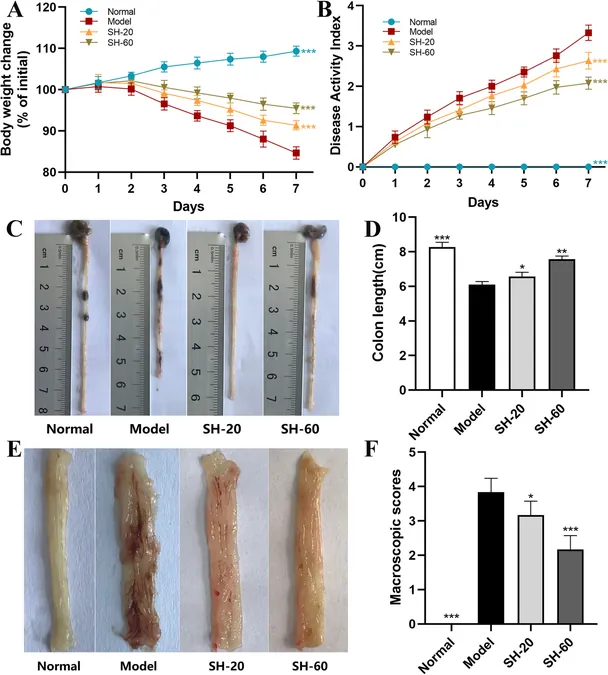
Unlocking Hope: Sinomenine Hydrochloride Emerges as a Game-Changer in Treating Ulcerative Colitis Through The Notch Pathway
2024-12-18
Author: Siti
Introduction
Ulcerative colitis (UC) is a debilitating chronic inflammatory bowel disease that significantly impacts the lives of those affected, often leading to severe complications such as colorectal cancer. Alarmingly, the incidence of UC has surged in recent years, shedding light on the urgent need for innovative treatments. Conventional therapies, including aminosalicylic acids, glucocorticoids, and immunosuppressants, often come with substantial side effects and limited effectiveness over time.
Sinomenine Hydrochloride: A New Hope
Amidst this backdrop, researchers have turned their attention to Sinomenine hydrochloride (SH), a potent compound derived from Sinomenium sinense and Trichosanthes sinensis. SH exhibits noteworthy pharmacological properties, including anti-inflammatory and immune-regulating capabilities. It has previously shown promise in treating various inflammatory diseases such as kidney disorders and rheumatic conditions.
The Notch Signaling Pathway
Recent studies have uncovered SH’s potential to intervene in the Notch signaling pathway, a crucial player in several inflammatory and autoimmune diseases. As inflammation is known to be hyperactivated in UC, inhibiting this pathway may hold the key to treating this challenging condition. Despite previous research suggesting SH’s application in colitis management, the specifics of its therapeutic effects and underlying mechanisms had remained unclear—until now.
Research Findings
In a groundbreaking study focusing on a mouse model of UC induced by dextran sulfate sodium (DSS), researchers assessed SH’s therapeutic impact. The team meticulously designed their experiment, involving 24 BALB/c mice that were divided into various treatment groups. Mice in SH treatment groups demonstrated a significant reduction in disease activity, as reflected by improved weight stability, decreased intestinal inflammation, and reduced damage to colonic tissue.
Key Observations
Key observations from the experiment indicated that SH effectively inhibited the Notch signaling pathway, resulting in reduced expression of pivotal proteins associated with inflammation, including TNF-α, IL-1β, and IL-6. This cascade of anti-inflammatory actions not only alleviated symptoms like diarrhea and bloody stool but also preserved the structural integrity of the colon, offering hope for improved management of UC.
Conclusion
The evidence suggests that SH could emerge as a viable treatment option for patients who currently face a limited arsenal of effective therapies. Given its low toxicity, affordability, and ease of intestinal absorption, SH stands poised to bridge the treatment gap for millions who suffer from UC and other related diseases.
Looking Ahead
However, as researchers celebrate these promising findings, it's imperative to acknowledge that further investigations are necessary. Future studies should focus on broadening our understanding of SH’s detailed mechanisms of action and its long-term safety and efficacy in clinical settings.
As UC continues to rise as a public health concern, the potential of Sinomenine hydrochloride may not only redefine treatment paradigms but also transform the lives of those navigating the challenges of this chronic condition. Stay tuned to see how this story unfolds in the journey toward innovative ulcerative colitis therapies!



 Brasil (PT)
Brasil (PT)
 Canada (EN)
Canada (EN)
 Chile (ES)
Chile (ES)
 España (ES)
España (ES)
 France (FR)
France (FR)
 Hong Kong (EN)
Hong Kong (EN)
 Italia (IT)
Italia (IT)
 日本 (JA)
日本 (JA)
 Magyarország (HU)
Magyarország (HU)
 Norge (NO)
Norge (NO)
 Polska (PL)
Polska (PL)
 Schweiz (DE)
Schweiz (DE)
 Singapore (EN)
Singapore (EN)
 Sverige (SV)
Sverige (SV)
 Suomi (FI)
Suomi (FI)
 Türkiye (TR)
Türkiye (TR)